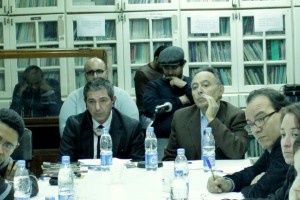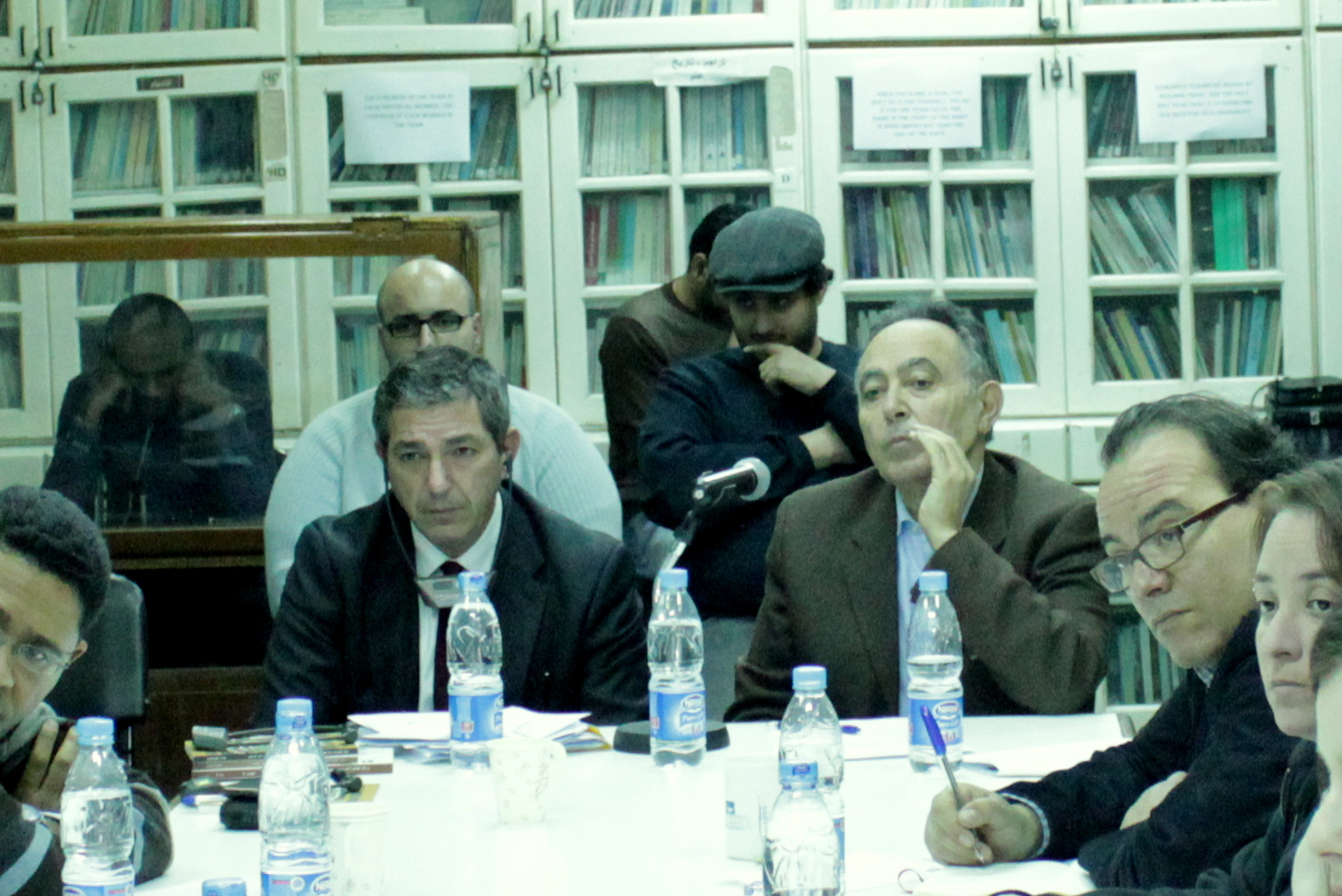 On the evening of Sunday, February 9, the Cairo Institute for Human Rights Studies hosted an open dialogue with Mr. Stavros Lambrinidis, the EU special representative for human rights, and 12 Egyptian and international advocacy organizations. The discussion was attended by 30 rights advocates and lawyers and five of Lambrinidis’s aides.
On the evening of Sunday, February 9, the Cairo Institute for Human Rights Studies hosted an open dialogue with Mr. Stavros Lambrinidis, the EU special representative for human rights, and 12 Egyptian and international advocacy organizations. The discussion was attended by 30 rights advocates and lawyers and five of Lambrinidis’s aides.
The dialogue addressed the general state of human rights in Egypt, focusing specifically on the violent attacks against demonstrations and peaceful assemblies, interference by the security bodies in the justice system and judicial proceedings, and attacks on rights groups and human rights defenders. The discussion also touched on women’s rights, the state’s observance of rights enumerated in the new constitution, respect for human rights in the context of “counter-terrorism”, and whether the security apparatus is effectively working on countering terrorism – or just to clamp down on peaceful opposition.
Prior to the open discussion, Lambrinidis and several of his aides met with five lawyers representing youth activists Ahmed Maher, Ahmed Douma, Alaa Abd al-Fattah, and Mohammed Adel; this meeting took place at Lambrinidis’s request. They discussed the prisoners’ conditions, the unlawful conditions surrounding their trials, pressure facing the lawyers – especially repeated attacks by police personnel – and the lawyers’ inability to contact their clients.
The Hisham Mubarak Law Center, the Egyptian Association for Community Participation Enhancement, Nazra for Feminist Studies, the Arabic Network for Human Rights, the Egyptian Initiative for Personal Rights, the Shuraa Association, the General Coalition for Children’s Rights, the Egyptian Center for Economic and Social Rights, the Front for the Defense of Egyptian Demonstrators, the Egyptian Commission for Rights and Liberties, Oxfam, and the Euro-Mediterranean Human Rights Network took part in the discussion.
Bahey eldin Hassan, the director of the CIHRS, had taken part in a working dinner with Lambrinidis the evening before at the invitation of the EU ambassador to Egypt. Those present exchanged opinions on the status of human rights in Egypt in the framework of bilateral relations between Egypt and the EU and UN conventions ratified by Egypt.
“Egypt is no longer on the road to democracy,” Hassan later said. “Just because there is a schedule for certain events like the constitutional referendum and a presidential or parliamentary election does not mean it is on the road to democracy. Despite reasonably good articles in the Rights and Liberties chapter of the constitution, these articles were flagrantly breached before, during, and after the constitution was written and approved by the referendum. The violent acts by which the police commemorated the third anniversary of the January 25 Revolution, when police killed more than 100 Egyptians, do not indicate that Egypt is moving towards democratization, nor do the campaigns of intimidation against opponents of the constitution or potential presidential candidates. Moreover, the fact that the perpetrators of every massacre committed over the last three years have been allowed to remain beyond the reach of justice is certainly no indication that Egypt is on the road to democracy.”
Share this Post

